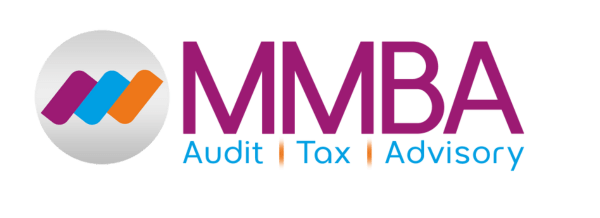
What Does a Chartered Tax Adviser (CTA) Do in the UK?
Subscribe to Newsletter
Table of Contents
Both individuals and companies frequently turn to the knowledge of a Chartered Tax Adviser (CTA) for assistance in exploring the complicated world of taxes. However, what exactly is the function of a chartered tax adviser (CTA), and why is it so important to the management of financial affairs? This blog post will discuss the duties of a CTA, their professional tax expertise, their professional qualification and the reasons their advice is crucial for managing both direct and other indirect taxes inheritance tax.

What Are the Responsibilities of a Chartered Tax Adviser (CTA)?
In order to successfully explore the complicated world of taxes, tax advisers are essential. From managing inheritance tax trusts to guaranteeing compliance with rules in the taxation of larger companies, they offer professional advice on a broad range of civil matters. Their expertise extends to the taxation of owner managed businesses and unincorporated businesses, offering tailored strategies to minimise tax obligations and optimise financial performance.
The type and scale of the employer determines the work that a tax adviser does. Large companies typically have organisational structures that enable greater specialisation, whereas work may be more varied in smaller businesses.
As their career progresses, a graduate working in tax advisory may first concentrate on compliance tasks like filing tax returns and figuring out the amount owed, before moving into consulting and specialisation.
Typical areas of operation consist of:
- Investigate, evaluate, and interpret changing tax laws in the UK and other countries
- Gathering information and having meetings with clients
- Working with revenue provisions and tax law
- Meeting the deadline for filing compliance (tax) returns
- Communicating and negotiating on the client’s behalf with HM Revenue & Customs (HMRC)
- Delivering advisory services to valuable private clients
- Putting together clients’ tax plans and future financial plans
- Performing thorough calculations to determine a client’s tax liability as well as offering advice on ways to reduce that liability
- Creating and arranging family trusts
- Estate preparation and tax residence and domicile advice
- Providing advice on matters related to indirect taxation, such as customs and estates VAT, as well as estate taxation.
- Environmental taxes and planning
- Preparing presentations and reports for customers.
The Chartered Tax Adviser (CTA) qualification has four levels:
To join the Chartered Institute of Taxation (CIOT), you need to finish all CTA levels and be able to prove that you have three years of relevant, relevant professional experience.
Three Computer-Based Exams
There are three computer based exams in Law, Ethics and Accountancy. You will need to pass all three for the CTA qualification unless you are eligible for an exemption. The duration of the examinations is one hour, featuring a combination of multiple-choice and multiple-response questions.
Papers:
- Law
- Professional Responsibilities and Ethics
- Principles of Accounting
Advanced Technical level
You will pick two exams at Advanced Technical level. These should be your specialist areas of knowledge as the Advanced Technical level is a highly specialised paper. We would not normally recommend sitting more than one paper at this level in any one sitting.
Papers
- Individuals Taxation
- Taxation of Owner Managed Businesses
- Taxation of Larger Companies and Groups
Application & Professional Skills level
You will normally need to pick one Application & Professional Skills paper, which will align to the specialist areas of knowledge you completed as part of your Advanced Technical Level. This is a case study style paper which involves pre-seen information in advance of the exam.
Papers:
- Taxation of Owner Managed Businesses.
What Are the Requirements to Study CTA?
There are four components to the CTA, and in order to qualify, you must complete them all.
To achieve tax qualification as a CTA, you must:
- Choose two Advanced Technical papers and Complete them. The Advanced Technical paper should ideally represent your chosen specialisation and call for the most in depth knowledge.
- Choose three Awareness modules and complete them. The Advanced Technical Papers you choose and the Awareness modules you choose cannot be on the same subject. There are some qualifications that apply to exemptions.
- Complete the Application and Professional Skills assignment in the same subject field of your choice.
- Complete the computer based examinations in ethics, law, and accounting.
Indirect Taxes
The Unseen Business Expenses: Other indirect taxes inheritance tax, such as VAT, customs charges and excise taxes, can have a significant impact on a company’s bottom line, despite often being less obvious. With the help of a consultant, businesses can identify these hidden costs and develop effective strategies to manage them. A CTA ensures compliance with other indirect taxes, uncovers potential savings, and helps companies avoid costly penalties, ultimately enhancing financial performance.
Inheritance Tax
Inheritance tax planning is a critical aspect of managing wealth for future generations. Consultant play a key role by providing guidance on setting up inheritance tax trusts, which help minimise tax liabilities and ensure assets are distributed according to your wishes. The inheritance tax trusts are essential in estates and succession planning, protecting wealth and facilitating a smooth transfer of ownership while reducing tax implications.
Conclusions
A Chartered Tax Adviser (CTA) brings the highest level of qualification, essential for exploring the complexities of both individuals taxation and business taxation. Whether working with owner managed businesses or larger companies, CTAs ensure compliance with tax return deadlines and the effective handling of VAT, inheritance tax trusts and the taxation of owner managed businesses.. With expert tutors and a leading professional body backing their qualifications, CTAs provide invaluable advice on the taxation of unincorporated businesses, estates, and personal clients. This role, marked by a rigorous three years process and non negotiable standards, upholds the highest level tax qualification standard in the taxation landscape of the UK, ensuring that clients are well informed and compliant. By understanding the complexities of taxation of larger companies, a Chartered Tax Adviser ensures strategic financial planning and compliance for your business.
FAQs Related to Chartered Tax Advisor
What is the role of a chartered tax advisor (CTA)?
An exceptionally skilled individual with a focus on offering knowledgeable advice on tax related issues is a chartered tax adviser. This involves assisting clients with rules and regulations compliance, reducing tax obligations, and making financial plans for the future. The knowledge and abilities of a CTA are priceless, whether you’re an individual looking for guidance on personal taxes or a business seeking assistance on corporate tax matters.
How long does it take to become a chartered tax advisor (CTA)?
The UK’s Chartered Institute of Taxation (CIOT) administers the CTA qualification, which requires a series of exams covering various estates taxation areas. The process typically takes 7-10 years, including education, professional experience, and completing the CTA qualification. Candidates typically start with an undergraduate degree in accounting, finance, law, or economics, and gain work experience in tax or related fields.
How much do CTAs make in the UK?
- Graduate trainees are typically paying between £20,000 and £32,000 per year in starting salaries.
- The pay for newly qualified chartered tax advisers (CTAs) ranges from £26,000 to £36,000 per year, with the potential to increase to £55,000 as experience grows.
- A VAT-qualified manager with three years of experience can earn an annual salary ranging from £50,000 to £68,000. Senior managers may reach up to £95,000, while directors with the highest standard of qualifications can earn up to £140,000 annually.


